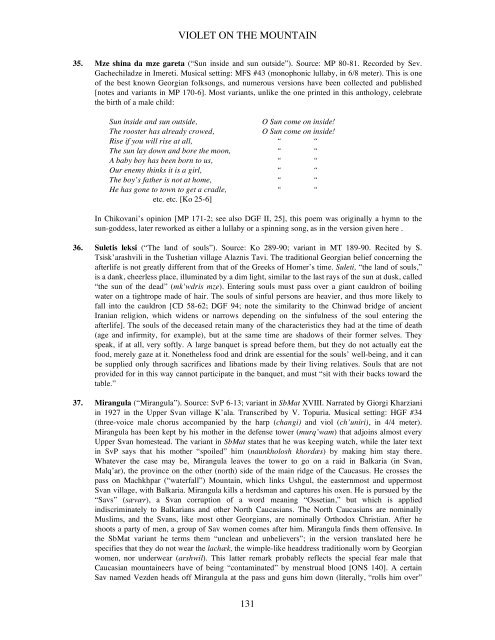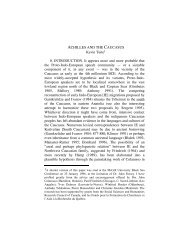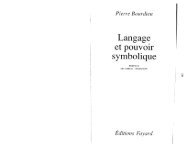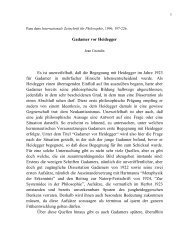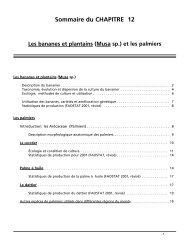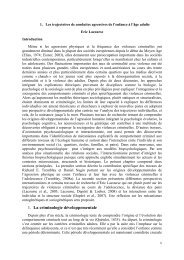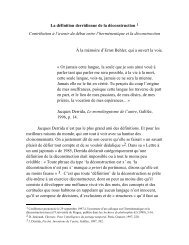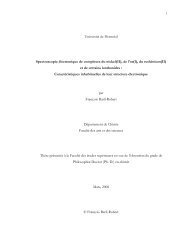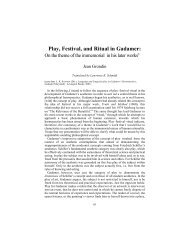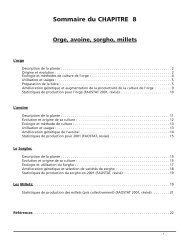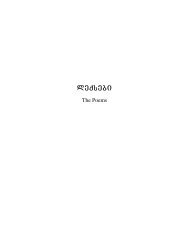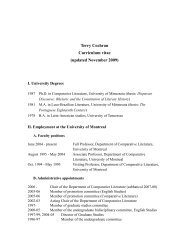You also want an ePaper? Increase the reach of your titles
YUMPU automatically turns print PDFs into web optimized ePapers that Google loves.
VIOLET ON THE MOUNTAIN<br />
35. Mze shina da mze gareta (“Sun inside and sun outside”). Source: MP 80-81. Recorded by Sev.<br />
Gachechiladze in Imereti. Musical setting: MFS #43 (monophonic lullaby, in 6/8 meter). This is one<br />
of the best known Georgian folksongs, and numerous versions have been collected and published<br />
[notes and variants in MP 170-6]. Most variants, unlike the one printed in this anthology, celebrate<br />
the birth of a male child:<br />
Sun inside and sun outside, O Sun come on inside!<br />
The rooster has already crowed, O Sun come on inside!<br />
Rise if you will rise at all, “ “<br />
The sun lay down and bore the moon, “ “<br />
A baby boy has been born to us, “ “<br />
Our enemy thinks it is a girl, “ “<br />
The boy’s father is not at home, “ “<br />
He has gone to town to get a cradle, “ “<br />
etc. etc. [Ko 25-6]<br />
In Chikovani’s opinion [MP 171-2; see also DGF II, 25], this poem was originally a hymn to the<br />
sun-goddess, later reworked as either a lullaby or a spinning song, as in the version given here .<br />
36. Suletis leksi (“The land of souls”). Source: Ko 289-90; variant in MT 189-90. Recited by S.<br />
Tsisk’arashvili in the Tushetian village Alaznis Tavi. The traditional Georgian belief concerning the<br />
afterlife is not greatly different from that of the Greeks of Homer’s time. Suleti, “the land of souls,”<br />
is a dank, cheerless place, illuminated by a dim light, similar to the last rays of the sun at dusk, called<br />
“the sun of the dead” (mk’wdris mze). Entering souls must pass over a giant cauldron of boiling<br />
water on a tightrope made of hair. The souls of sinful persons are heavier, and thus more likely to<br />
fall into the cauldron [CD 58-62; DGF 94; note the similarity to the Chinwad bridge of ancient<br />
Iranian religion, which widens or narrows depending on the sinfulness of the soul entering the<br />
afterlife]. The souls of the deceased retain many of the characteristics they had at the time of death<br />
(age and infirmity, for example), but at the same time are shadows of their former selves. They<br />
speak, if at all, very softly. A large banquet is spread before them, but they do not actually eat the<br />
food, merely gaze at it. Nonetheless food and drink are essential for the souls’ well-being, and it can<br />
be supplied only through sacrifices and libations made by their living relatives. Souls that are not<br />
provided for in this way cannot participate in the banquet, and must “sit with their backs toward the<br />
table.”<br />
37. Mirangula (“Mirangula”). Source: SvP 6-13; variant in SbMat XVIII. Narrated by Giorgi Kharziani<br />
in 1927 in the Upper Svan village K’ala. Transcribed by V. Topuria. Musical setting: HGF #34<br />
(three-voice male chorus accompanied by the harp (changi) and viol (ch’uniri), in 4/4 meter).<br />
Mirangula has been kept by his mother in the defense tower (murq’wam) that adjoins almost every<br />
Upper Svan homestead. The variant in SbMat states that he was keeping watch, while the later text<br />
in SvP says that his mother “spoiled” him (naunkholosh khordæs) by making him stay there.<br />
Whatever the case may be, Mirangula leaves the tower to go on a raid in Balkaria (in Svan,<br />
Malq’ar), the province on the other (north) side of the main ridge of the Caucasus. He crosses the<br />
pass on Machkhpar (“waterfall”) Mountain, which links Ushgul, the easternmost and uppermost<br />
Svan village, with Balkaria. Mirangula kills a herdsman and captures his oxen. He is pursued by the<br />
“Savs” (sævær), a Svan corruption of a word meaning “Ossetian,” but which is applied<br />
indiscriminately to Balkarians and other North Caucasians. The North Caucasians are nominally<br />
Muslims, and the Svans, like most other Georgians, are nominally Orthodox Christian. After he<br />
shoots a party of men, a group of Sav women comes after him. Mirangula finds them offensive. In<br />
the SbMat variant he terms them “unclean and unbelievers”; in the version translated here he<br />
specifies that they do not wear the lachæk, the wimple-like headdress traditionally worn by Georgian<br />
women, nor underwear (arshwil). This latter remark probably reflects the special fear male that<br />
Caucasian mountaineers have of being “contaminated” by menstrual blood [ONS 140]. A certain<br />
Sav named Vezden heads off Mirangula at the pass and guns him down (literally, “rolls him over”<br />
131


